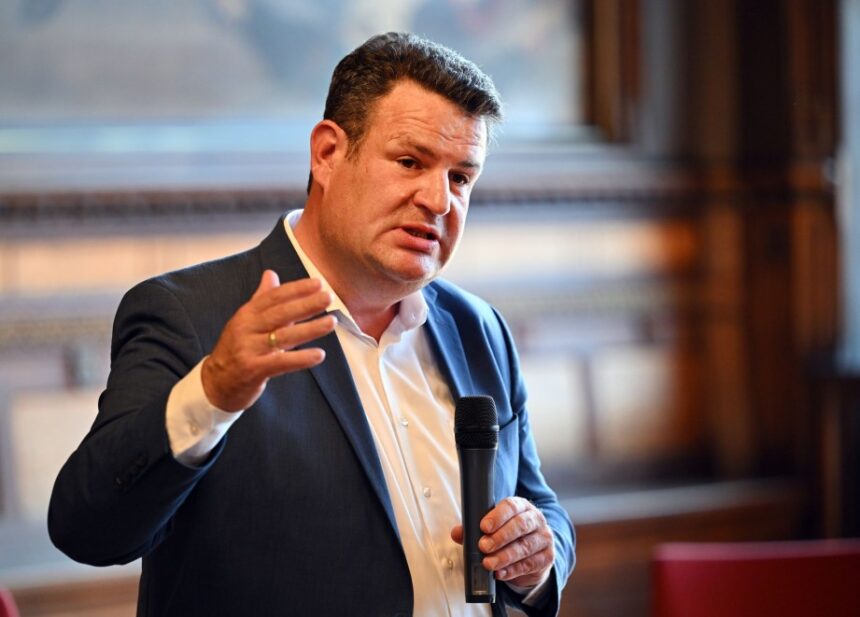By Stefan Heinemeyer, dpa I Wednesday, Sept. 04, 2024
BERLIN – German Labour Minister Hubertus Heil on Wednesday said unemployment benefits are to be frozen in 2025 as inflation returns to normal levels.
Heil told broadcaster RTL that no increase in the Bürgergeld – or citizens’ income – was planned for next year under the existing formula for calculating rises.
Germany’s new unemployment benefit system was agreed in late 2022 by Chancellor Olaf Scholz’s coalition government and introduced in 2023.
Amid high inflation rates, the monthly payment for single unemployed adults rose to €563 ($622) in 2024, an increase of €61.
Heil, from Scholz’s Social Democrats (SPD), said that the system provides a safety net for job-seekers in Germany. “This is the minimum subsistence level, no more, but also no less,” he stated.
With inflation falling to 1.9% in August, Heil argued that freezing benefits was the “right thing to do.”
The minister also said sanctions should be tightened on people refusing to work or those failing to declare extra income.
Unemployed people should not be considered lazy, Heil argued, but he said anyone failing to attend appointments or take up employment opportunities should face restrictions.
The benefit freeze had previously been hinted at by the Labour Ministry in July.
Coalition partners praise move, welfare group concerned
Heil’s coalition partners – the pro-business Free Democrats (FDP) and the Greens – praised the decision to freeze benefits on Wednesday.
FDP General Secretary Bijan Djir-Sarai said in Berlin that the freeze was an important step in ensuring employees are fairly compensated for their work.
“Those who go to work must always have significantly more in their pockets than those who live on taxpayers’ money,” he said, calling for further incentives for people to join the workforce and more consistent sanctions on those avoiding employment.
Andreas Audretsch, deputy leader of the Green parliamentary group, told RTL that the freeze was the “logical consequence” of the coalition’s success in bringing down inflation to 1.9%.
Welfare groups were not impressed with the government’s move, however, with the Social Association of Germany (SoVD) saying it showed the governing centre-left coalition is out of touch with the needs of job-seekers.
“Poverty is part of everyday life for many people in Germany. The fact that, after years of crisis and with prices for everyday necessities remaining at a high level, there is now a threat of a freeze, is due to the current formula for calculating standard needs,” SoVD leader Michaela Engelmeier said.
She added: “What is needed is a new procedure for determining needs that realistically reflects the everyday needs of those affected and prevents poverty from increasing further in our country.”

